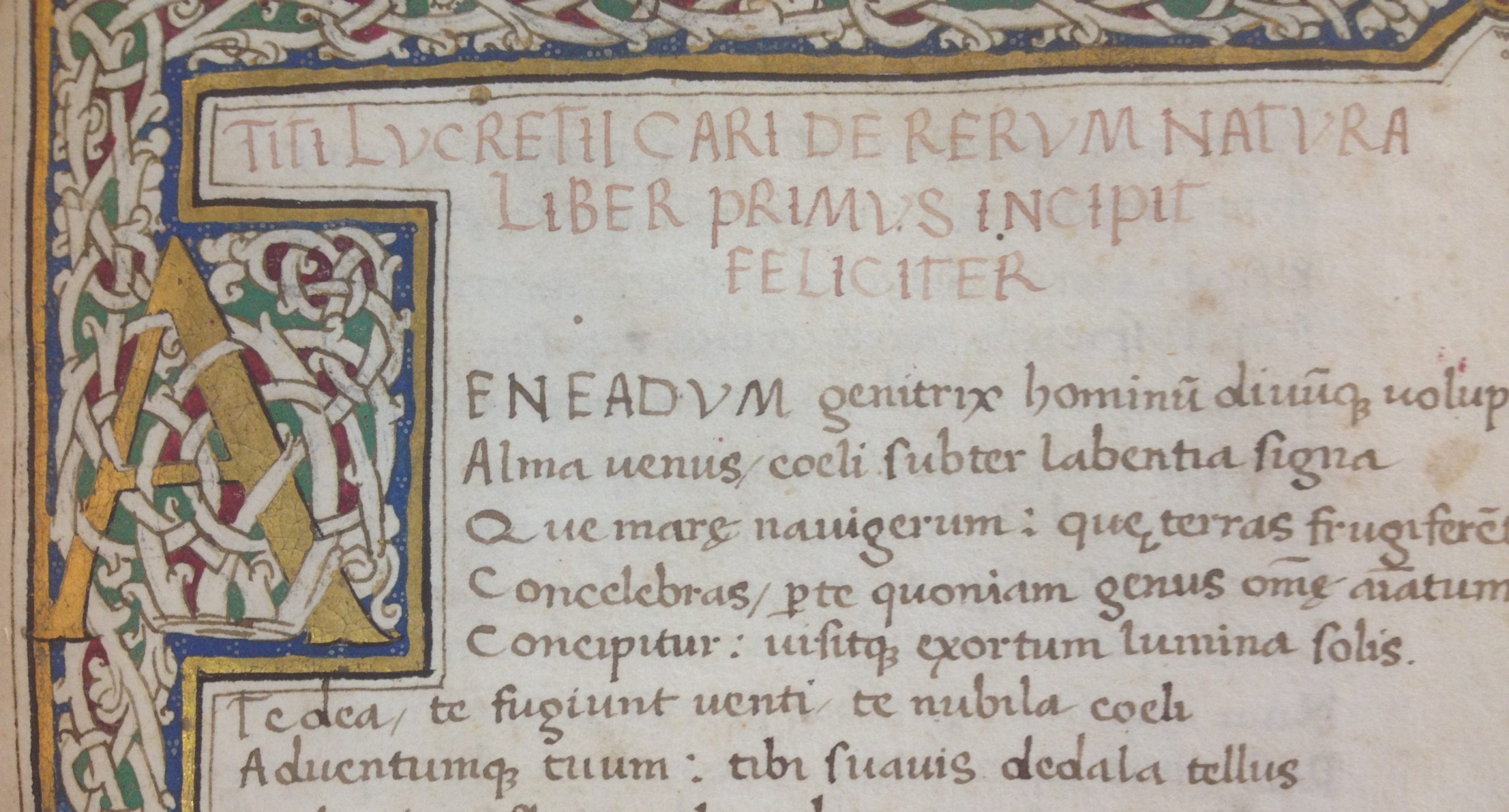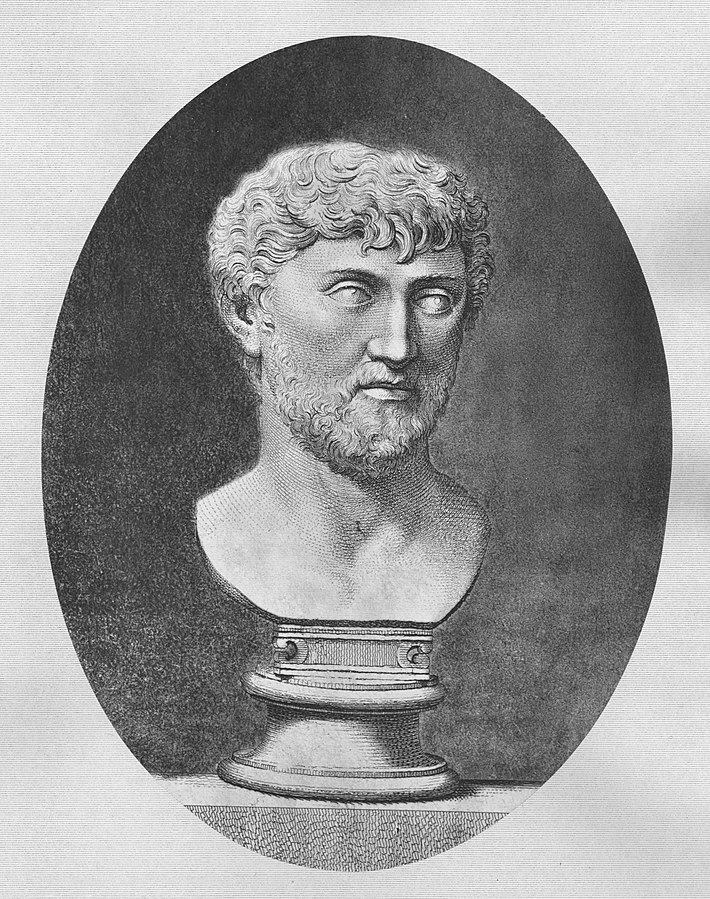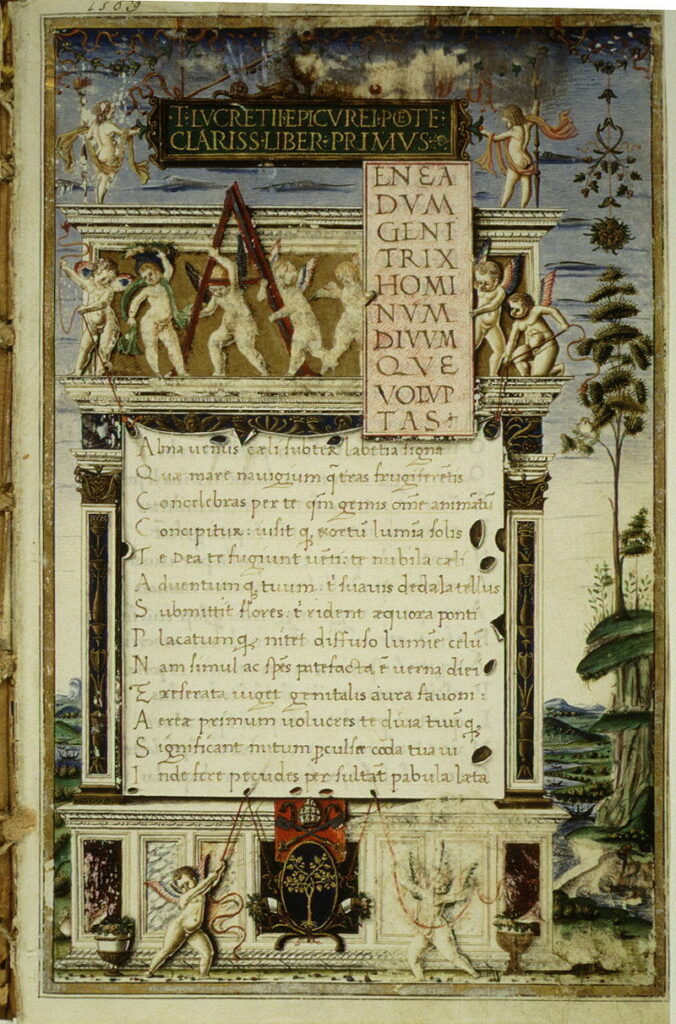by Ed Whelan, Contributing Writer, Classical Wisdom
It was one of the most controversial poems ever written.
It is a remarkable, philosophical epic written in beautiful language, yet it is also much more. On the Nature of Things by Lucretius was a key text for the many followers of Epicureanism in the Roman Empire, and its rediscovery in the Renaissance was a major cultural event. The core aim of the poem, however, is to help people to live a better and more tranquil life, something which is can still do today. But before we get to the poem, who was Lucretius exactly?
Life of Lucretius
Titus Lucretius Carus (99-55 BC) was a Roman philosopher and poet, who most likely came from an aristocratic family. On the Nature of Things (or De rerum natura in Latin) is the only work of his to survive. While almost nothing is known for certain about his life, it appears that he was either the friend or client of Gaius Memmis, a powerful politician. Based on evidence from the text, this relationship may have cooled over time. According to St. Jerome (who hated the philosophy of Lucretius) he went insane because he drank a love-potion, and committed suicide. There is reason to doubt the veracity of this.
We do know, however, that Lucretius was an Epicurean. That is to say, he was a follower of Epicurus, the 4th century BC Greek thinker. Epicurus taught that the aim of philosophy was ataraxia (or peace of mind) and that this was only possible for people if they did not fear the gods. This was a radical concept in Epicurus’ time, and has been controversial across history.
Epicurus was a materialist and believed that the world was made of atoms. He taught that taking pleasure in moderation was the highest good. Because of this, Epicurus’ work has often been misrepresented. He was unfairly condemned as a simple hedonist uninterested in ethical issues. In reality, he believed that if people lived rationally and did not fear the gods, society would be transformed for the better, and individuals would be happier.
On the Nature of Things
The poem is divided into seven books written in hexameters, the metre of epic poems like the Iliad and the Odyssey. Book I introduces’ the main themes: it defines atoms and presents the laws that govern the universe. The second book expands on Lucretius’ ideas on atoms, which are based on Democritus’ atomic theory, which Epicurus adopted. It also deals with the mind, senses, and the soul. Lucretius argues that they are produced by movement of special atoms. In this section, Lucretius also developed the idea of the ’swerve’. Whereas Epicurus’ atomic theory would seem to preclude free will, Lucretius argued that atoms ‘swerved’ when they deflect each other, and that this allows for a measure of free will.
In the third book, Lucretius deals with the mind-body relationship, and how they interact with the spirit. Lucretius argues that because our soul is only formed by atoms, we are not immortal and therefore should not fear an afterlife or the wrath of the gods. Death itself is not to be feared either, as we are only atoms. Lucretius believed that this knowledge would allow people to have peace of mind. To that end, Lucretius quotes Epicurus’ words, “Death is nothing to us”.
Book Four examines how the senses work and explains Epicurean ideas on sex, while the fifth book presents an overview of Epicurean cosmology. This has the planet earth as the centre of the universe. It also presents a similarly unscientific but very poetic account of the origin of the world and the development of culture and civilization
Book Six is also dedicated to explaining natural phenomena and discussing the great plague of Athens (430 BC). The Book concludes abruptly, and many topics that Lucretius stated he was going to investigate were not discussed. Many scholars believe that Lucretius may have died and did not complete the epic.
The Afterlife of the Work
Epicureanism came under attack from Christians, who reviled the philosophy, as they deemed it immoral and dangerous. Lucretius was then forgotten until the Renaissance. One surviving copy of the epic was discovered in an Italian monastery, and On the Nature of Things then went on to become enormously influential on the Renaissance. Crucially, the poem encouraged many to accept a more secular worldview.
Right until modern times, Christians were discouraged from reading the work. Yet many writers were inspired by Lucretius’ poem, including the French essayist Montaigne, and the English dramatist Christopher Marlowe. Even after two millennia, On the Nature of Things is still a powerful and influential work of literature.












No comments yet. You should be kind and add one!
Our apologies, you must be logged in to post a comment.